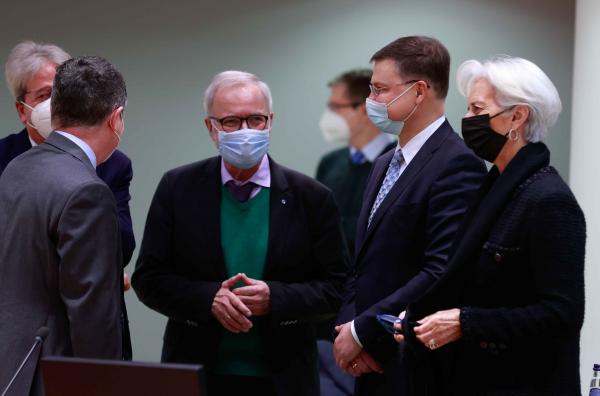
A “remarkable” policy response by the European Union and Member States prevented the coronavirus pandemic from provoking an economic collapse, EIB President Werner Hoyer told a gathering of European ministers of economy and finance in Brussels on Tuesday.
“Working together, the European Union Member States have achieved a rapid emergency policy response which has been well-coordinated and targeted – and which has been commensurate to the enormous task of preventing the initial shock from multiplying into a full-blown systemic crisis,” President Hoyer told the Economic and Financial Affairs Council (Ecofin).
Investment Report’s findings
President Hoyer pointed to recent data from the EIB Investment Survey as proof of the effectiveness of the response. More than half of firms (56%) in Europe benefitted from some kind of policy support over the past two years.
The Investment Report, which the EIB published Jan. 12, draws on an annual survey of 12 500 firms throughout Europe to analyse investment trends and investment finance.
The 2021/2022 findings show that policy support helped many firms weather the crisis and adapt to the rapid digitalisation and greening of the economy. Policy support is also being credited with protecting investment in Europe. A growing number of European firms, 47%, say they are planning to invest in climate measures in the future.
While investment dipped at the beginning of the pandemic, it has since rebounded to pre-crisis levels. That rebound is particularly surprisingly considering the decade or so it took for investment to return to normal levels after the global financial crisis.
“I am convinced that it is, in no small part, due to these bold crisis response efforts that we have seen real investment in the European Union get back to its pre-crisis level in less than two years,” President Hoyer said.
The rebound in investment is positive, but significant “fault lines” still exist for the economic recovery, President Hoyer said. The pandemic isn’t over, and it continues to be a source of great uncertainty for business. High energy prices are weighing on economic activity. How policymakers respond to high energy prices will be crucial for the green transition. Filling energy shortfalls with fossil fuels would be a mistake, President Hoyer said. He pointed out that the green transition should be the “seen as the solution to the problem of high energy prices, not the cause.”
An asymmetric recovery from the crisis could widen gaps between regions and social groups. “How resilient will firms be once exceptional policy support measures are fully removed?” President Hoyer asked.
Looking ahead
To prepare Europe for these challenges, public funds such as those provided under the €723.8 billion Recovery and Resilience Facility need to be invested wisely. Strong public investment over the last two years has helped offset the pandemic’s economic impact.
In the future, strong public support will also be key to catalysing investment by the private sector in climate change measures and in the innovative technologies that need to be developed to help decarbonise our economies.
Engineers at the EIB estimate that about 50% of emission reductions needed by 2050 will depend on technologies that are currently in the prototype or demonstration stage, and not yet available on the market. And risk sharing instruments which proved their success during the crisis can be seen as a blueprint for targeted higher risk investments in climate and technology.
“It is critical that – irrespective of the need for transition solution – we keep on pushing on this front,” President Hoyer said. “This is not just a matter of good climate policy, but also key to our strive towards more energy independence, as well as for the EU’s competitiveness more generally.